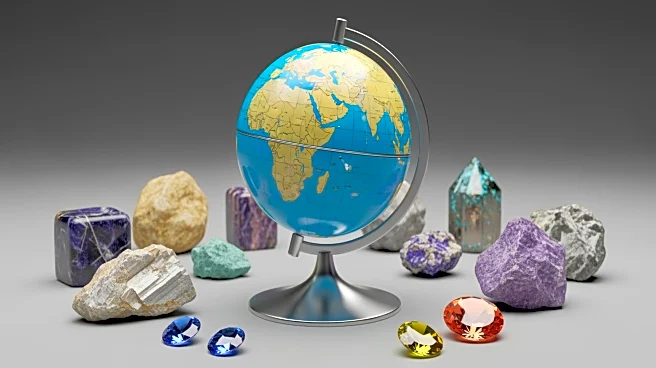What's Happening?
A coalition of investors in the mining sector has proposed the establishment of an International Minerals Agency, modeled after the International Energy Agency. This group, known as the Global Investor
Commission on Mining 2030, manages or advises on $18 trillion in assets. The proposed agency would be responsible for monitoring global mineral supply and demand, as well as tracking illegal mineral flows. The investors, including prominent entities such as PIMCO, ING, and Allianz Investment Management, released a report in Sao Paulo outlining a 10-year plan for a responsible mining sector. This initiative comes ahead of United Nations climate negotiations and aims to provide data on companies' progress towards global sustainability standards.
Why It's Important?
The creation of an International Minerals Agency could significantly impact the global mining industry by promoting transparency and sustainability. By monitoring mineral supply and demand, the agency could help stabilize markets and reduce illegal mining activities, which are often linked to environmental degradation and human rights abuses. The initiative reflects a growing trend among investors to prioritize sustainability and ethical practices, potentially influencing corporate behavior and public perception. This move could also align with broader climate goals by ensuring that mineral extraction supports sustainable development.
What's Next?
The proposal for an International Minerals Agency is likely to spark discussions among global stakeholders, including governments, industry leaders, and environmental groups. The success of this initiative will depend on multi-stakeholder collaboration and the willingness of countries to participate in and support the agency's objectives. As the United Nations climate negotiations approach, the proposal may gain traction as part of broader efforts to address climate change and promote sustainable resource management.
Beyond the Headlines
The establishment of an International Minerals Agency could have long-term implications for the mining industry, potentially setting new standards for environmental and social governance. This could lead to increased scrutiny of mining practices and greater accountability for companies, influencing investment decisions and regulatory frameworks. The agency's focus on illegal flows could also address issues related to conflict minerals and their impact on global security and human rights.









